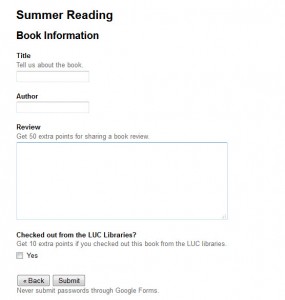I went to the doctor yesterday to confirm that my broken foot was healed. He showed me the X-ray and said “My diagnosis is confirmed. That’s always a good feeling.” What I didn’t know is that it was only the evidence of healing that would confirm that I really did have a broken foot. I had always assumed that unless the bone was ripped apart it wasn’t really broken, but a stress fracture isn’t that visible on an X-ray until it’s healed. He explained it more. “Do you see the blurriness here? This is messy, disorganized bone. It will eventually become smooth again, but it will take a few months.”
The metaphor of this struck me so hard that I almost had to laugh. The evidence of healing is the only way you know there was an injury. How much of life is like this? We don’t believe, can’t believe, that anything is wrong, until we come through to the other side and see that messy, disorganized growth has occurred. He also told me “Don’t try to make up for lost time. Take it slow.” This is the piece that consistently eludes me.
I finally made time this morning to read Meredith Farkas’s brilliant series on “Thoughts at Mid-Career”, which I wanted to read for some time but never did. I decided to sit down in a nice bakery around the corner from my house and just read for twenty minutes, which I spent an absurd amount of time justifying that it would ultimately make better use of my time for the rest of day trying to balance errands, an appointment, and work time. Of cour

se, that justification of spending that time to be more productive was pretty ironic, given that Meredith argued persuasively that that line of reasoning is unnecessary, if not damaging. The concept of “mid-career” has been on my mind a lot lately. The Midwest Data Librarians Symposium, which I attended earlier this week (after being on the planning committee even though I am not technically a data librarian) had several discussions of that idea. What does it mean to be mid-career? What does it mean if you are in a specialty that barely existed or didn’t exist when you were in library school, and you have no idea what it will look like by the time you plan to retire? Is it ok to just like your job and be in it for the next 20 years? A lot of people admitted somewhat sheepishly that they liked what they did and didn’t want to change, but felt wrong about that. I suspect that the rhetoric about “millennials are going to change jobs and careers so much!!!” means that you can sit there in your mid-30s, ten years into your same career on your third job and second institution, and think that you missed the mark somewhere. Being in the middle of your career means there is too much room for comparison.
Throughout the thought kept occurring to me that mid-career is highly contextual. You don’t actually know that you are ever in the middle of something. You can think that you are doing something for a certain period of time, and assume that you know what the middle of that will be. But the end can come at any point, or even a lengthy hiatus that puts you off track even if you do eventually return. What you think is the middle may be the high point, and that can be scary if you think there is this other thing you are “supposed” to do, especially if you’re not sure what that thing is. Being open to everything and trying to do everything so you don’t miss anything is one option. It’s often the one I choose, and the one that so many other data librarians at the conference took as well, either by choice or necessity. These are services that libraries are often tacking on to other things, and that means that all the needs are going through one person. But those “needs” are often not truly needs. Certainly, there are jobs that are all-consuming and inflexible, but not so many in academia. Rather, there is an administrative apparatus around nearly everything (and this goes for most jobs outside academia too!) that feels all-consuming and to make work rather than being based on actual needs. I don’t know that I actually believe this, however. I think everyone has their own motivations in planning work or trying to get something done, and those motivations and approaches are not all that understandable to everyone else. “Why would they do this thing that way? That is clearly an inefficient approach to a low priority project.” And it may be, but without a crisis, you end up muddling through things for a long time without stopping, and that builds up until you have the committee to study the committee for committees. I am not being facetious. There are zero institutions of any long standing who have not have had such a committee, and I wrote a whole book about this. (Writing the book is why I haven’t written a blog post in a long time, among other reasons.)
Perhaps being at mid-career means that you have the insight into why certain processes are taking place, and why people would do such a thing. I think you can continue to throw yourself into the mix with vigor that leads to exhaustion and burnout, or treat it with utter disdain and cynicism. We all know people who have gone one of these ways. I am trying to take a lesson from my third metatarsal on my right foot. The evidence of healing proves there was an injury–I wasn’t just imagining the pain or challenge–but the healing will take time. Pursuing that future carefully and thoughtfully is the only thing you can do.
